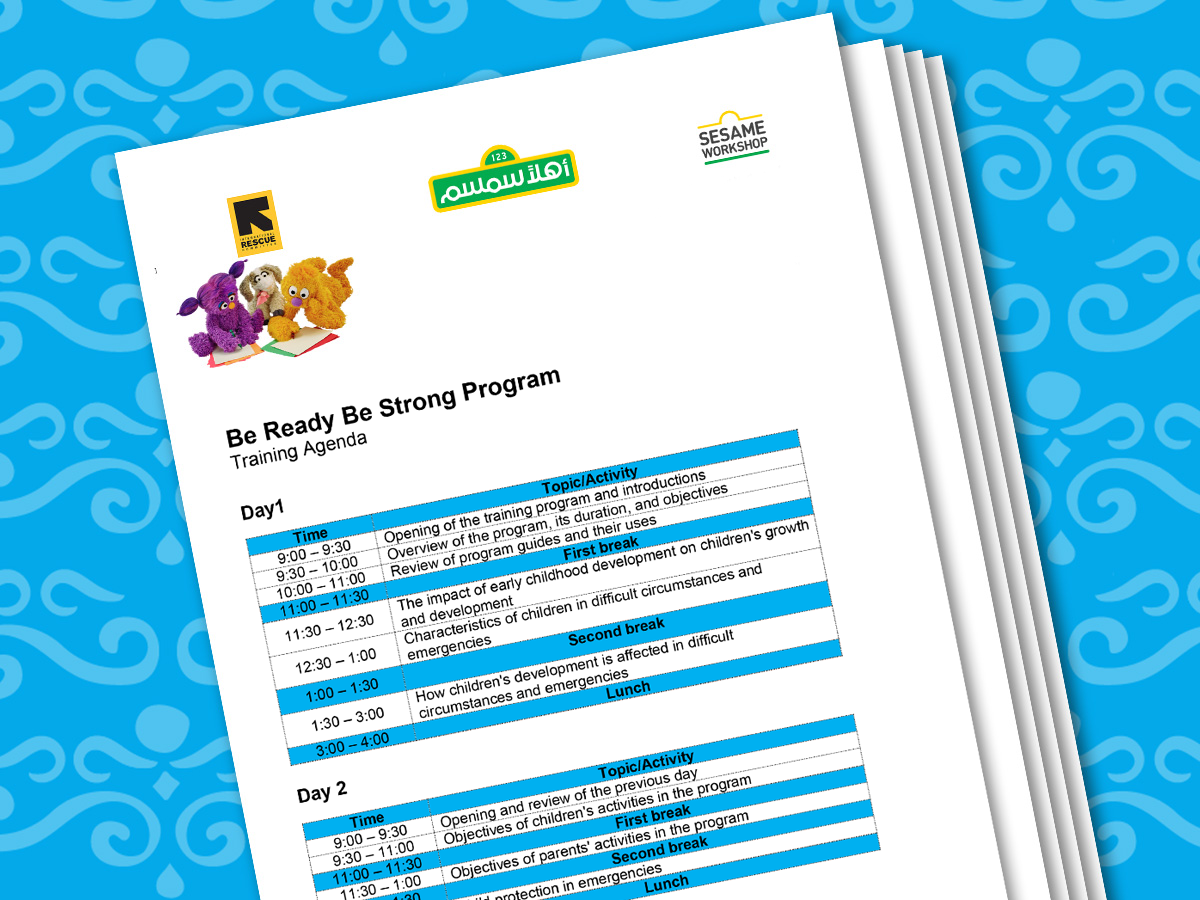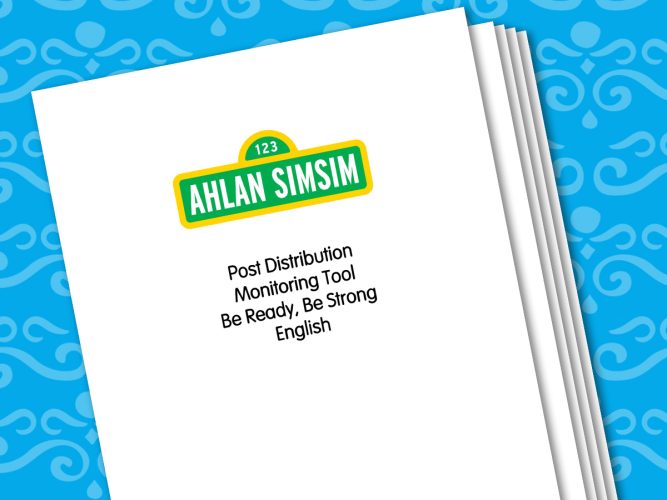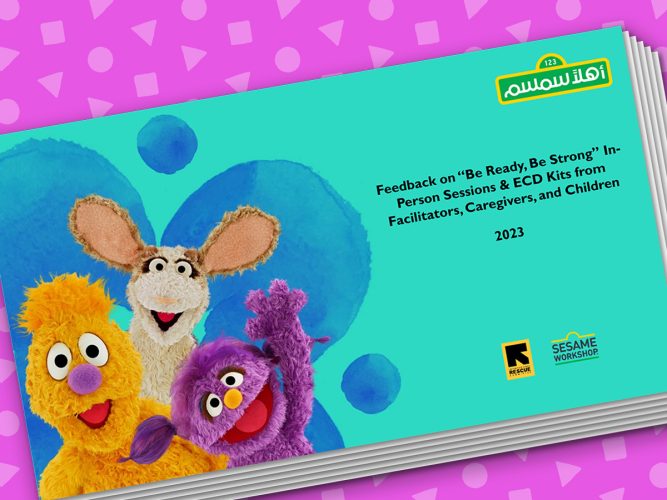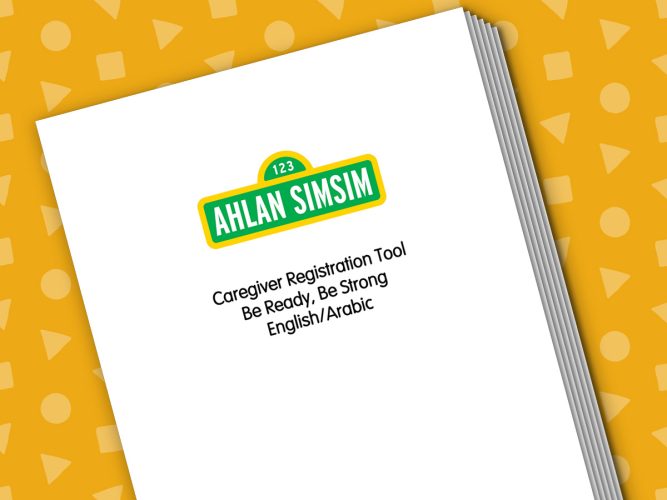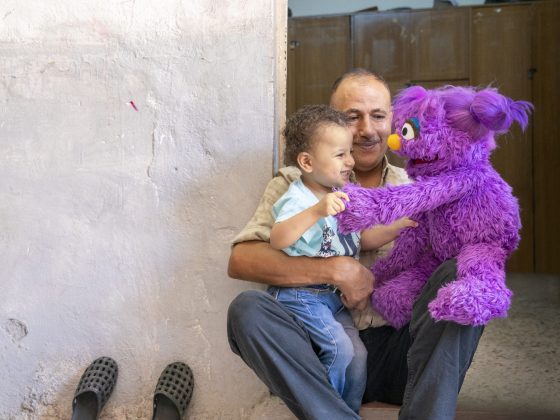
Be Ready, Be Strong
Supporting young children and caregivers affected by natural disasters, acute emergencies, and conflict.
Be Ready, Be Strong aims to:
- Provide safe play-based interactions to support children’s development, wellbeing and recovery in emergency situations.
- Encourage children to participate in supportive, secure, predictable, inclusive, and culturally relevant early learning experiences.
- Provide caregivers with culturally and contextually appropriate psychosocial support services and relevant parenting programs that utilize learning through play approaches.
Who we
worked with
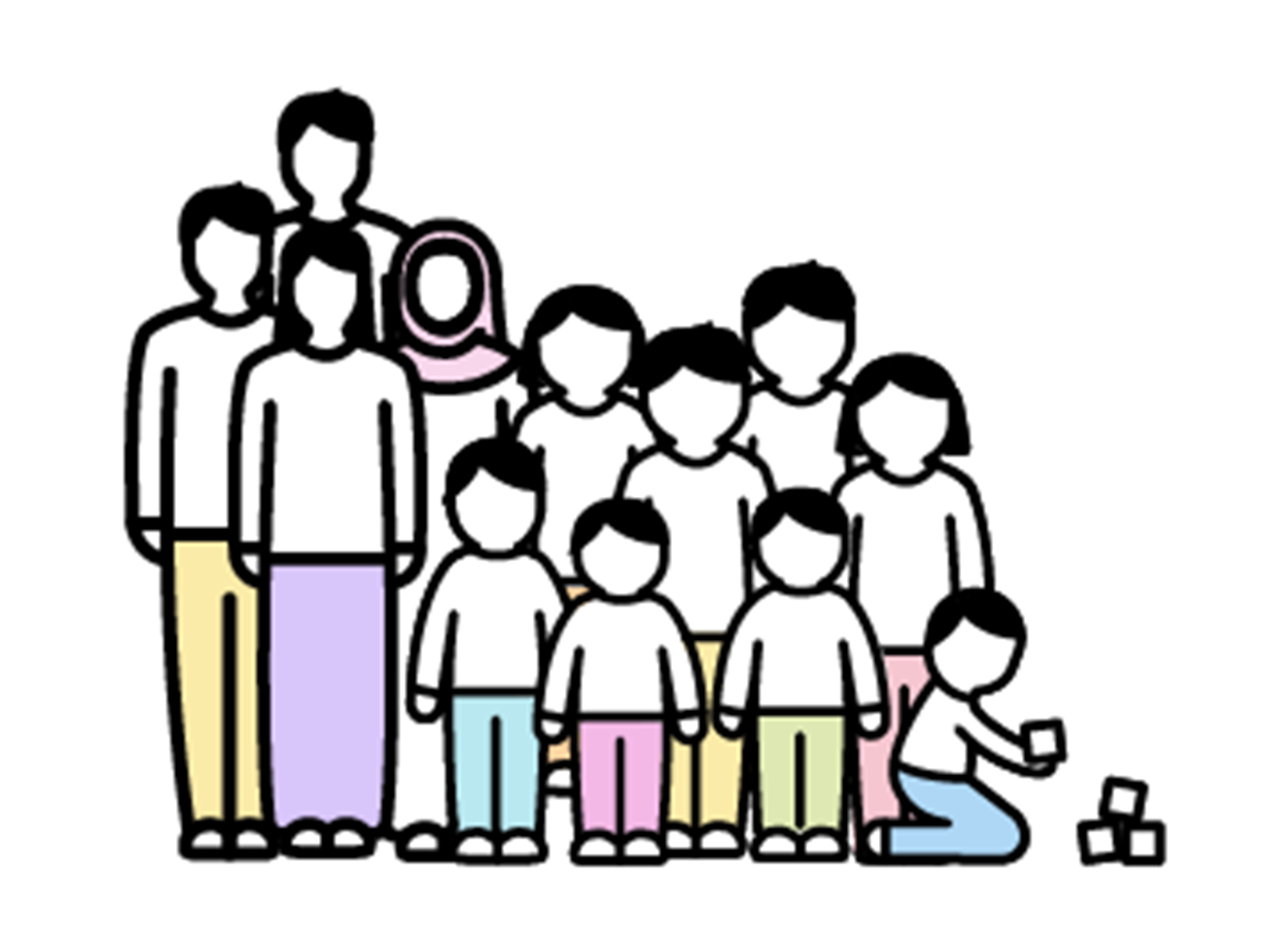
Caregivers and Children
ages 3–8
Where we
worked
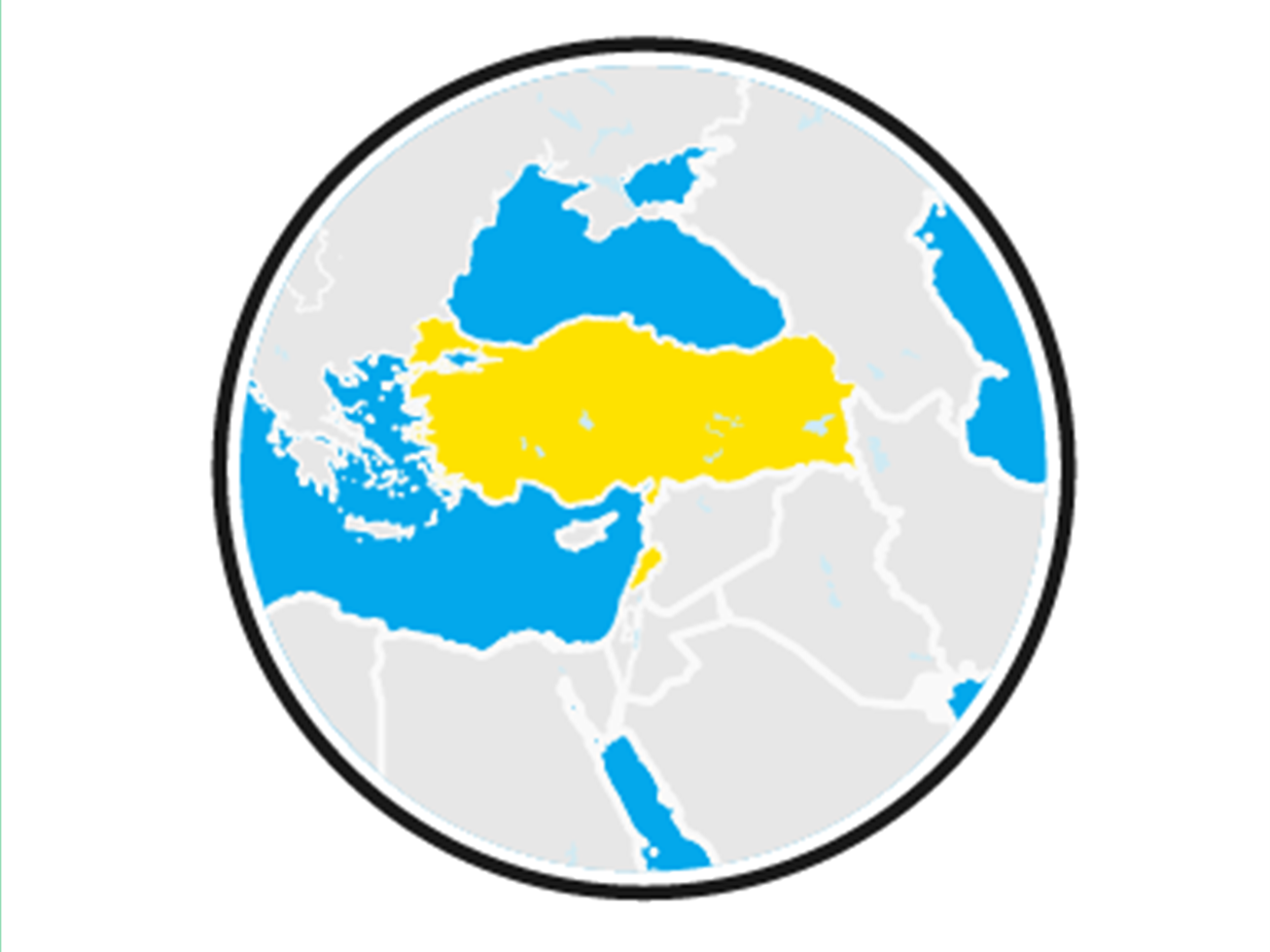
Northern Syria, Turkiye, Lebanon
How we delivered content
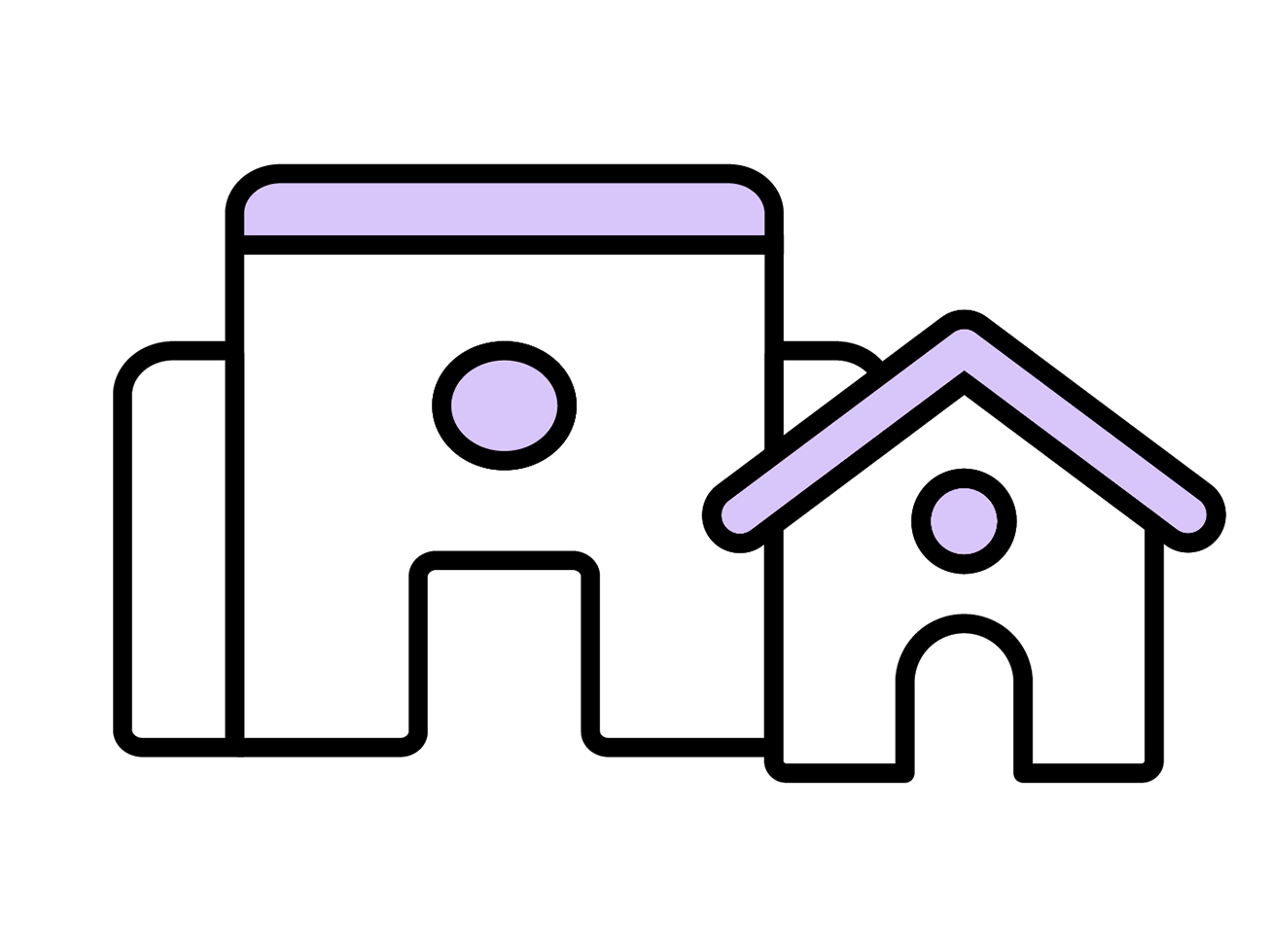
In person in shelters and safe spaces.
Frequency
.

This model is highly flexible and adaptable, with 15 optional sessions.
Caregivers Feel Satisfied and Supported
Satisfied means that the recipients self-report that they are satisfied or very satisfied with how the direct services they receive are supporting their role as a parent/caregiver. Developmentally supportive interactions are those that are primarily affectionate, responsive towards the child, encouraging, and teaching.
74% of Caregivers
212 out of 313 caregivers surveyed promote developmentally supportive interactions with their children (affectionate, responsive towards the child, encouraging and teaching).
100% of Caregivers
100% (n=313) of caregivers are satisfied with the effect of Ahlan Simsim services on their role as parents/caregivers
Be Ready Be Strong Reach
16,448 Children
Be Ready Be Strong reached 100 educators, 10,197 caregivers and 16,448 children (age 3-8) in Syria, as of December 2023.
100% of Caregivers
All 313 caregivers who participated in the post distribution monitoring were satisfied with the program.
Reach by Partner
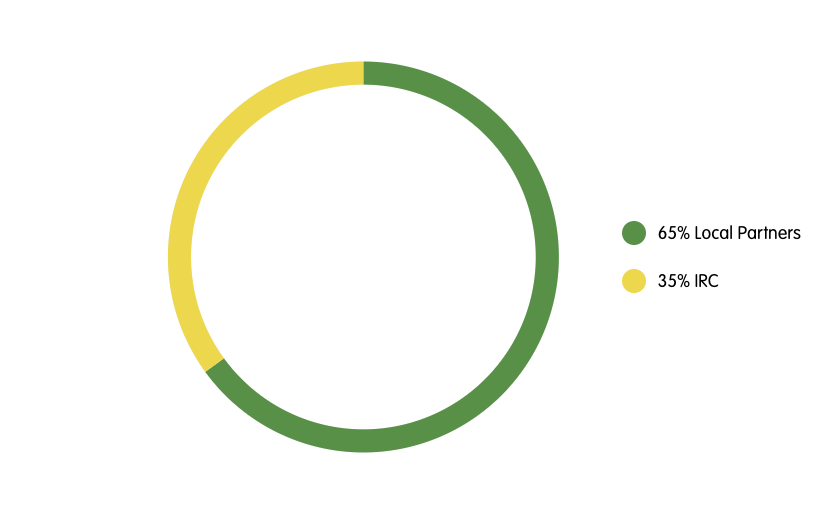
Program Content and Delivery
Be Ready, Be Strong assists caregivers and children in coping with emergencies like natural disasters and conflicts. The program was initially developed in response to the unexpected port explosion in Beirut in 2020 to support children and caregivers whose early childhood development (ECD) programming was interrupted. Since then, it has been adapted for other regional emergencies, including the 2023 Syria and Türkiye earthquake.
The program contains 15 sessions for caregivers and children that can be delivered both in-person and remotely (or in a hybrid modality). Sessions are flexible in sequence and frequency, and can be implemented in a variety of settings, including phone calls, ECD centers, temporary shelters, and safe spaces, and mobile units. Facilitators receive a detailed activities manual for children and caregivers, including materials to printout, links to multimedia resources, tips for adaptation, and psychosocial guidance. Caregivers receive an ECD home kit featuring an activity manual, worksheets with drawing, coloring, cut and paste activities, play-based age-appropriate booklets, and stationery. The booklets include links to multimedia resources such as videos and songs that caregivers can access online.
Be Ready, Be Strong curricula and materials were designed and developed in Arabic.
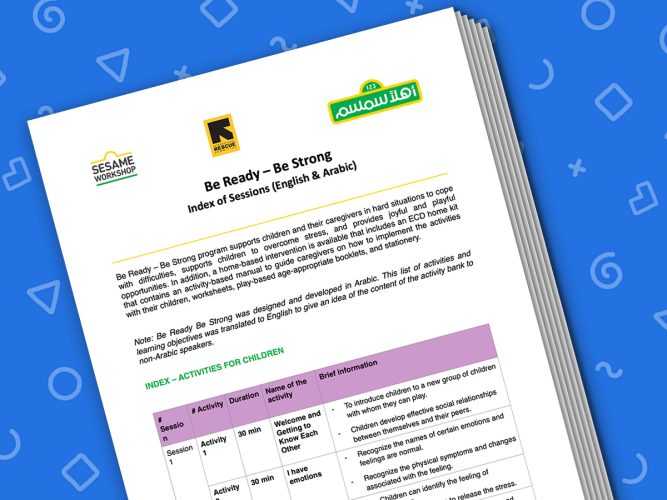
Index of Activities
A bilingual index in Arabic and English.
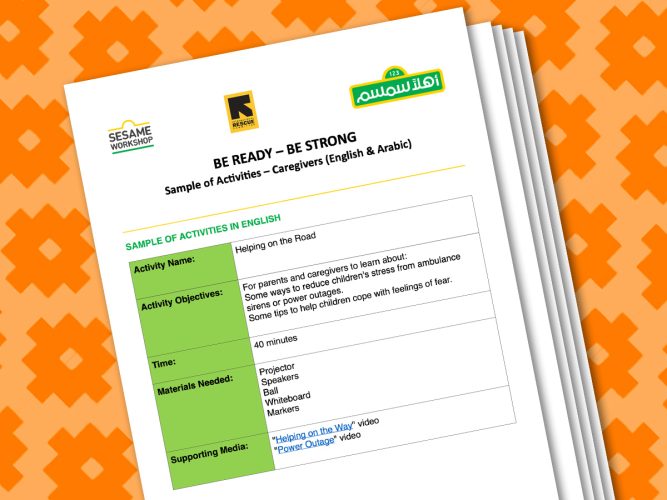
Sample Activities for Caregivers
Full activity plan samples in Arabic and English
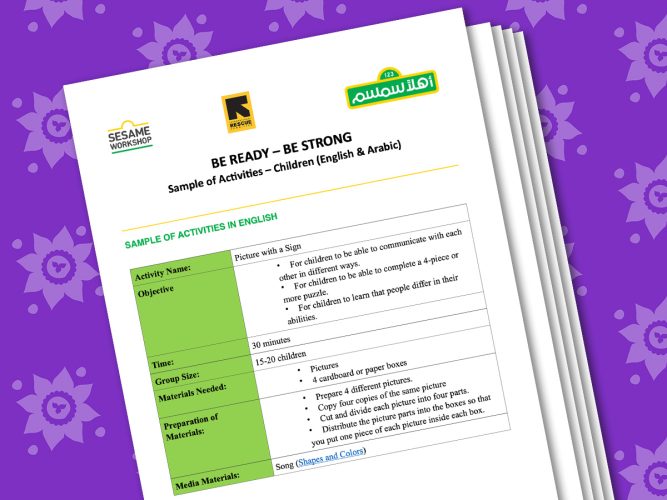
Sample Activities for Children
Full activity plan samples in Arabic and English
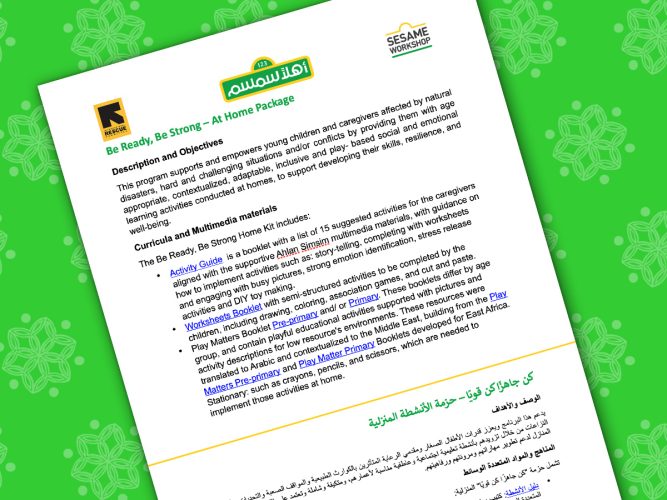
Summary of Program Resources
A guide to program resources available in Arabic.
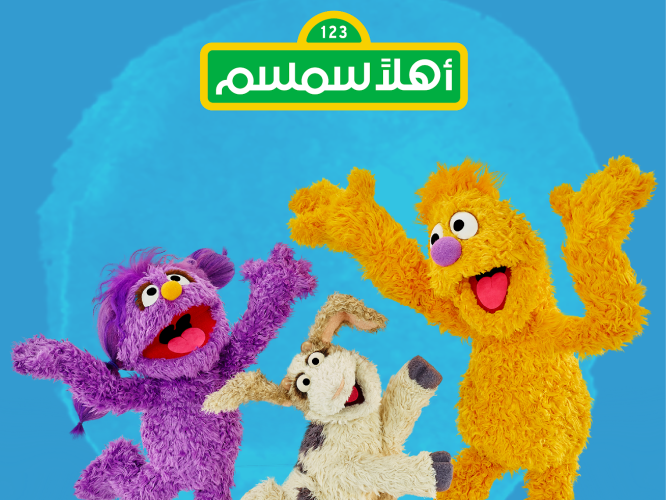
Multimedia Content
From the Ahlan Simsim library.
Training and Supervision
Facilitators, depending on their prior experience, complete a four or five-day training (in-person or remote), focused on topics such as the importance of ECD in emergencies, identification of stress and trauma symptoms, positive coping strategies, disability inclusion, child protection in emergencies, and cross-sectoral referrals. The training also focuses on implementation modalities for the program (in-person/remote), facilitation techniques, facilitator well-being, and monitoring and evaluation tools.
Technical support meetings are conducted on a regular basis to address contextual challenges and gaps, and to identify areas of development and opportunities. Country and regional technical focal points conduct field visits to program sites to observe implementation, ensure quality delivery, and gather feedback on content usability and effectiveness. Facilitators also have access to Ahlan Simsim E-learning modules with core ECD topics that can be covered fully online and can also download the Kadr Facilitator Application which provides easy access to program materials and multi-media content, streamlining activity management.
Monitoring and Evaluation
A monitoring and evaluation plan was developed for the Be Ready, Be Strong program that includes monitoring tools such as a registration form, an attendance tool, and a post-distribution monitoring tool.
Findings from a qualitative study show that caregivers who took part in the program learned how to address their children’s needs more effectively in difficult circumstances. Caregivers observed positive shifts in children’s behavior, including increases in children’s self-confidence, better emotional management, and improved stress relief capabilities. Children demonstrated an ability to recognize and articulate their emotions through expressive drawings and verbal descriptions. They were also able to identify several stress relief techniques.
Tools, resources, and reports that supported the safe, quality, engaging implementation of Be Ready, Be Strong.
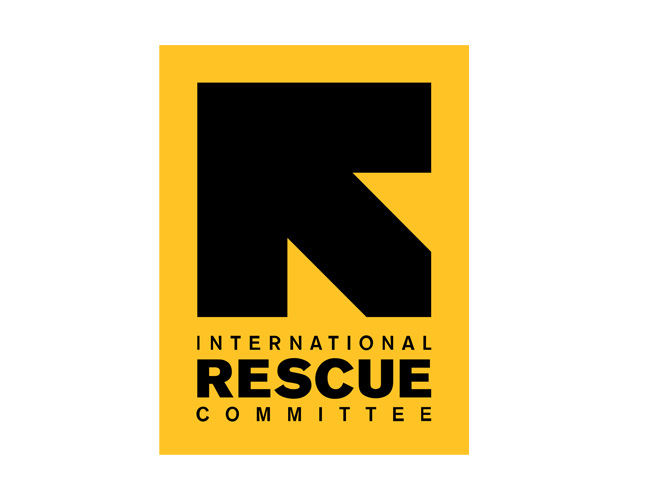
IRC
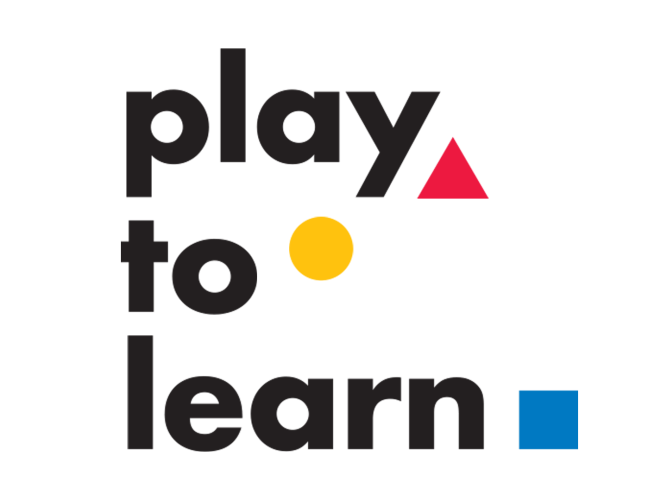
Play to Learn

Sesame Workshop
